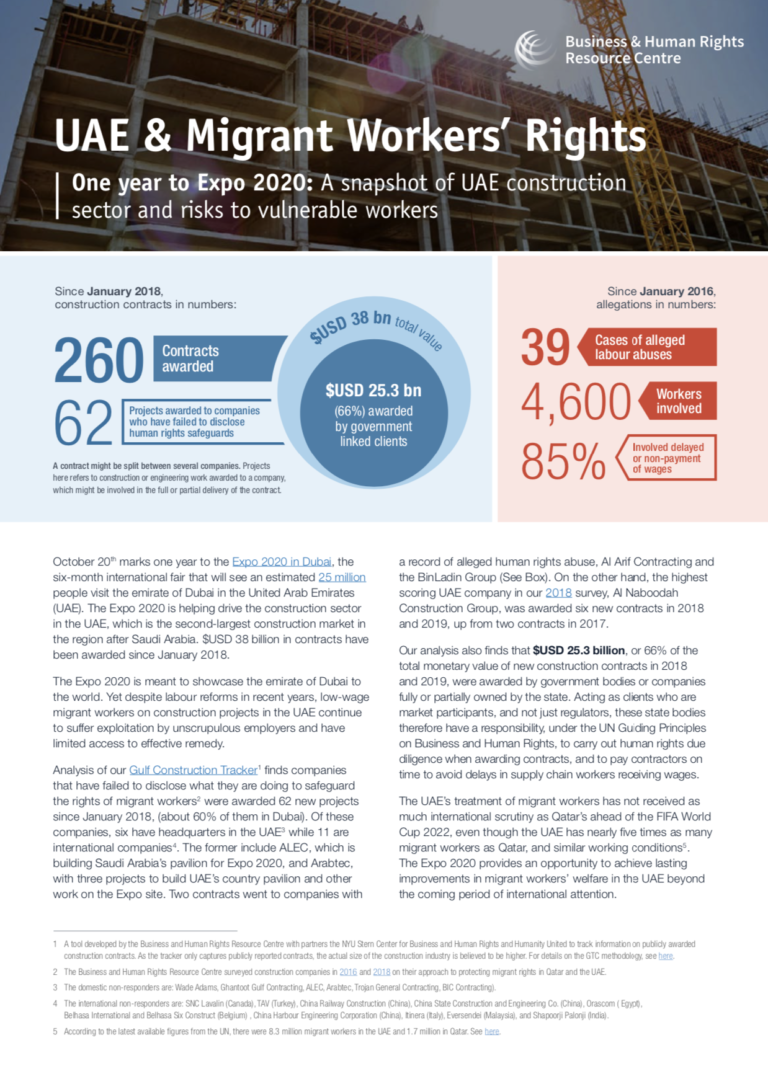The Expo 2020 will see an estimated 25 million people visit Dubai as the UAE showcases itself to the world. Yet 12 months ahead of the Expo’s launch, migrant workers on UAE construction sites continue to suffer exploitation and abuse – from heat stress and unsafe conditions to late or non-payment of wages and curbs on being able to change jobs.
A new report by Business & Human Rights Resource Centre finds 62 of the new construction projects awarded in UAE since January 2018 went to companies that have failed to disclose how they protect migrant workers.
Two contracts went to companies with records of alleged human rights abuses: Saudi firm the BinLadin Group and UAE company Al Arif Contracting.
The report also finds that the UAE government has a big role in awarding construction projects, with $25.3 billion – 66% of the contracts (by monetary value) – since January 2018 awarded by government bodies or companies fully or partially owned by the state.
This means the UAE government has a key responsibility to award contracts to companies that safeguard migrant workers’ rights, and to pay contractors on time to avoid delays to supply chain workers’ wages.

